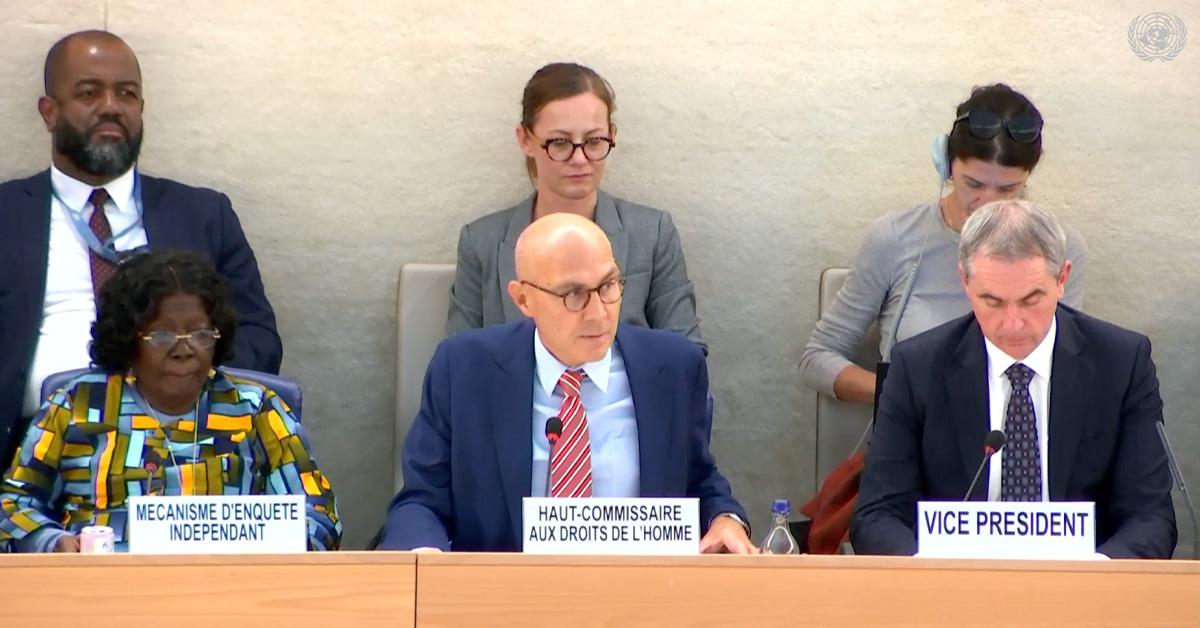Speaking before the UN Human Rights Council, members of the Expert Mechanism to Advance Racial Justice and Equality in Law Enforcement (EMLER) presented a thematic report along with two mission reports from visits to Brazil and Italy in 2023, while the Office of the High Commissioner for Human Rights presented its own thematic report.
Last year, from 27 November to 8 December, EMLER experts visited Brazil and heard first-hand testimonies from persons and groups directly impacted by racially motivated police brutality throughout the country. Experts notably called on authorities to ‘end the brutal violence being inflicted on people of African descent by the country’s police forces’.
In their report following this visit, EMLER experts recognised that systemic racism in Brazil is a direct consequence of enslavement and colonialism. They urged the Brazilian State to end the ‘war on drugs’ and ‘war on crimes’, which disproportionately affect Brazilians of African descent. Experts stated that these policies result in ‘a social cleansing process which serves to exterminate sectors of society deemed undesirable, dangerous and criminal’. The State, experts said, should address economic and racial injustice and inequality.
In their recommendations, experts echoed the pleas of directly impacted persons urging authorities to ‘end the generalised normalisation of military techniques and equipment in law enforcement; and limit and strictly regulate the acquisition, trade and use of military equipment by law enforcement’.
EMLER experts also presented their thematic report on justice, accountability and reparations for excessive use of force and other human rights violations by law enforcement officials against Africans and people of African descent. They underscored that ‘restorative justice for excessive use of force and other human rights violations committed by law enforcement officials against Africans and Afro-descendants is long overdue’.
The Office of the High Commissioner for Human Rights (OHCHR) presented its own report which unpacks key elements of intersectionality as an essential framework to combat systemic racism and confront legacies of enslavement and colonialism. The report calls for ‘a holistic application of the intersectionality framework’ to guide States as they address systemic racism, which should be done in a multi-level approach, including antiracist legislation and policies.
Like previous OHCHR reports, this publication follows up on emblematic cases that ‘illustrate key contexts in which police-related fatalities occur’, including those of George Floyd and Breonna Taylor in the United States, Adama Traoré in France, Kevin Clarke in the United Kingdom, Janner Garcia Palomino in Colombia, and the cases of Luana Barbosa dos Reis Santos and Joao Pedro Matos Pinto in Brazil.
The UN Antiracism Coalition calls on States to issue standing invitations to members of the Expert Mechanism to Advance Racial Justice and Equality in Law Enforcement and similar mechanisms, and to heed the latter’s advice and take all necessary measures to reform law enforcement agencies and end abusive and violent practices.




